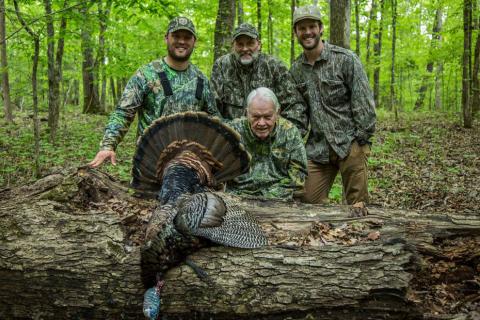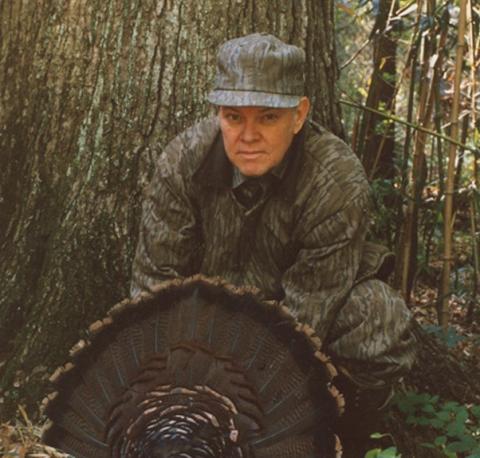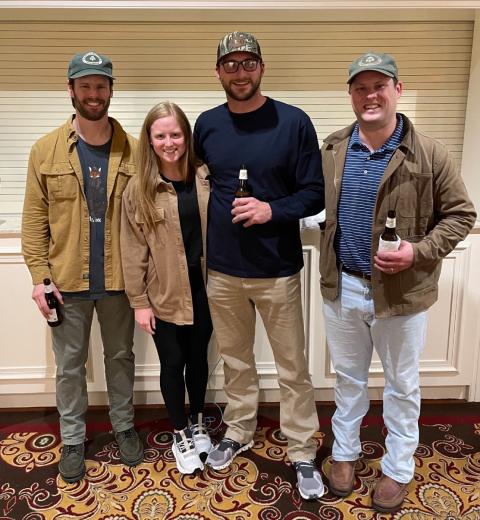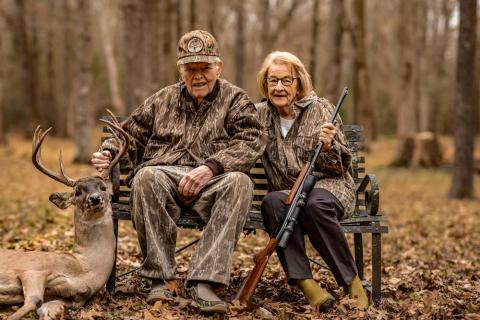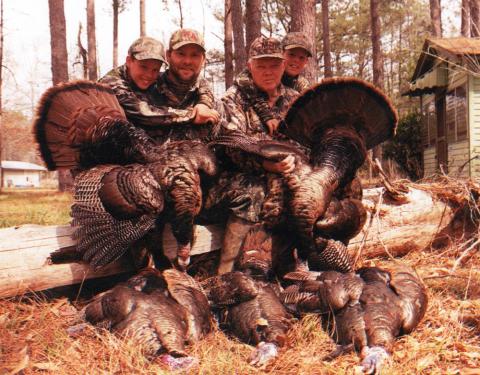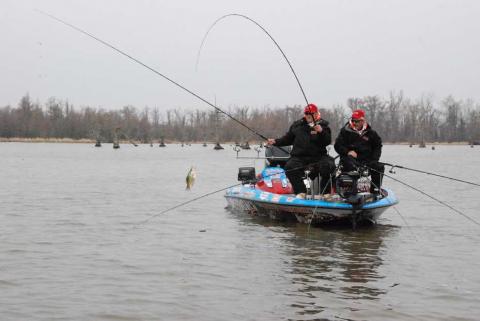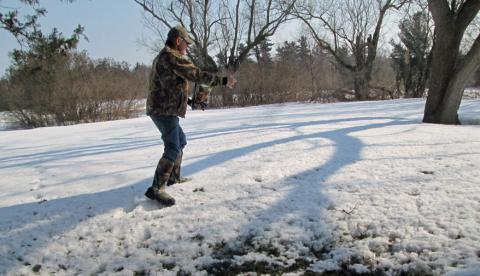Terry Drury with John Phillips | January 13, 2010
Editor’s Note: Terry Drury, a well-known outdoorsman and the brother of Mark Drury, his partner in Drury Outdoors Videos, is a longtime Mossy Oak enthusiast and deer hunter.
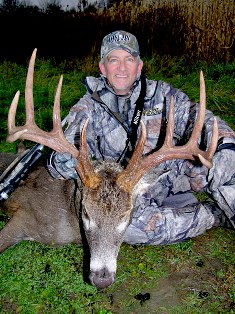 When I refer to "they," I'm referring to other hunters who surround the properties where we hunt, causing pressure. The first thing we see them do with frequency is either walk in or drive in and push out the deer they're trying to hunt. They may be accessing their stands on the wrong wind direction. They may be parking their vehicles or driving into areas that they shouldn't be driving to and pushing bucks out of little hollows and small ditches. Probably places where they least suspect deer to be are the areas where big, mature deer will lie. They're maybe driving their pickups into these fields in the dark of early morning, when they've just passed by a deer lying at the head of that draw, or they've just pushed out of that little draw the deer they're trying to hunt. The most-frequent occurrence we see probably is guys walking into or out of their stands or driving to their stands and pushing those deer out before they ever get there. So obviously, we will be at our stands early during the late season to hunt those pressured bucks. We’ll hunt our stands on the right wind direction. When that deer is bumped out of an adjacent parcel, we're going to be there to try to intercept it. So, hunting pressure around the land we hunt actually drives deer to us.
When I refer to "they," I'm referring to other hunters who surround the properties where we hunt, causing pressure. The first thing we see them do with frequency is either walk in or drive in and push out the deer they're trying to hunt. They may be accessing their stands on the wrong wind direction. They may be parking their vehicles or driving into areas that they shouldn't be driving to and pushing bucks out of little hollows and small ditches. Probably places where they least suspect deer to be are the areas where big, mature deer will lie. They're maybe driving their pickups into these fields in the dark of early morning, when they've just passed by a deer lying at the head of that draw, or they've just pushed out of that little draw the deer they're trying to hunt. The most-frequent occurrence we see probably is guys walking into or out of their stands or driving to their stands and pushing those deer out before they ever get there. So obviously, we will be at our stands early during the late season to hunt those pressured bucks. We’ll hunt our stands on the right wind direction. When that deer is bumped out of an adjacent parcel, we're going to be there to try to intercept it. So, hunting pressure around the land we hunt actually drives deer to us.
When the other hunters who cause the pressure around the land where we hunt do a tremendous amount of calling, rattling and grunting, we're close enough to hear them where we hunt in Pike County, Illinois, probably the most-highly-pressured deer-hunting county in the entire United States. Practically every day we hear guys sitting on the perimeter of the surrounding farm who are calling non-stop. So, we do just the opposite of what they're doing. Those deer hear calling every day, and they're immune to it. It just doesn't work. So, if you hear a lot of rattling and grunting in high-pressured areas, don't do either one.
Other hunters around our property in Illinois generally leave in mid-morning. You've heard a lot of people say, "I see big deer move mainly between 10:00 am and 2:00 pm.” We put a lot of faith in that statement. When the other hunters become cold, decide to climb out of their stands, stir around or go in to lunch, that’s when we stay put. That's when you need to be in your stand if you want to kill pressured deer because that's when you’ll see them up and moving. When that early-morning movement pattern that happens between 7 and 7:30 am or as late as 8 or 8:30 is over, it's like shutting-off a light switch. That's when you really have to be on your toes. In that period when the other hunters are stirring-around and leaving the woods, suddenly you may see one big buck slipping up through there all by his lonesome, going back to bed, or leaving his bedding area and moving to a staging region for that evening's feed. That 10:00 am – 2:00 pm segment is a really-critical time to stay put.
Avoid Scents and Lures in High-Pressured Areas
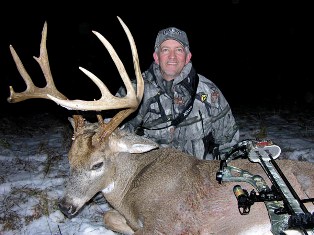 From the time they’ve been button bucks, deer in high-pressured areas have smelled every single scent imaginable - doe in estrus, tarsal, dominant buck, etc. They've become immune to every foreign substance known to man. I know some people have luck with scents and lures, and more power to them. If it works for you, use it. It's the same way with calling, grunting and rattling in high-pressured areas. Mark and I prefer not to call or put any foreign substance on our boots or on our persons when we go into or out of a high-pressured section of land. Big bucks know how to get downwind and will smell your track. They’ll turn around and go the other way. They only may skirt you by 50 - 100 yards, but smells and calls will push a big, mature animal out of that area, because he's been dealing with it for probably 5 years. That pressured buck knows that when he smells a scent or lure, chances are he'll get rattled to, called to or grunted at, so he's become very educated. When he smells that foreign substance, he'll skirt the area where it is, and you'll never see him or know he's there.
From the time they’ve been button bucks, deer in high-pressured areas have smelled every single scent imaginable - doe in estrus, tarsal, dominant buck, etc. They've become immune to every foreign substance known to man. I know some people have luck with scents and lures, and more power to them. If it works for you, use it. It's the same way with calling, grunting and rattling in high-pressured areas. Mark and I prefer not to call or put any foreign substance on our boots or on our persons when we go into or out of a high-pressured section of land. Big bucks know how to get downwind and will smell your track. They’ll turn around and go the other way. They only may skirt you by 50 - 100 yards, but smells and calls will push a big, mature animal out of that area, because he's been dealing with it for probably 5 years. That pressured buck knows that when he smells a scent or lure, chances are he'll get rattled to, called to or grunted at, so he's become very educated. When he smells that foreign substance, he'll skirt the area where it is, and you'll never see him or know he's there.



















